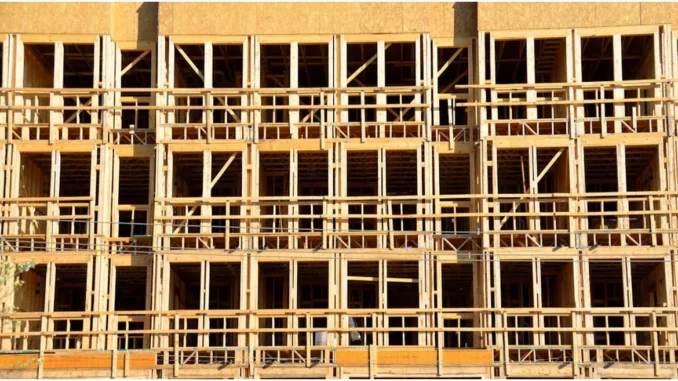
In recent years, the UK housing market has been characterised by a notable transition towards the use of sustainable materials, a shift that is redefining the valuation of homes across the nation. This trend mirrors a broader societal movement towards environmental awareness and the demand for eco-conscious living spaces. As homebuyers increasingly prioritise sustainability, the choice of building materials has become a pivotal factor in determining property values.
Focus360 Energy: property compliance services – pre-planning to post-construction. Learn more.
The construction industry has seen a marked increase in the adoption of sustainable materials, including timber, recycled bricks, and innovative composites. These materials not only offer environmental benefits but also provide significant economic advantages. According to the UK Green Building Council, properties constructed with sustainable materials often command higher prices. This is largely due to their appeal to environmentally conscious buyers who value reduced carbon footprints and lower energy bills. Timber, as an alternative to traditional brick-and-mortar constructions, has gained considerable popularity. Timber homes are lighter and more energy-efficient, offering lower heating costs during the British winters. Importantly, timber acts as a carbon sink, absorbing more carbon dioxide than it emits, and when sourced sustainably, it becomes even more attractive to buyers seeking eco-friendly options.
The concept of the circular economy is also gaining traction within the construction sector, focusing on waste reduction and the repurposing of materials. Recycled materials, such as bricks salvaged from demolished sites, are being integrated into new builds, adding unique character and historical depth to homes. This trend is particularly prevalent in urban areas where the blend of historic and modern architectural styles is common. Dr James Handley, a leading researcher on building materials, notes that recycled materials are increasingly recognised for their sustainability and the distinctive character they contribute to properties. This is evident in many of London’s iconic brownstones, which often feature reclaimed bricks and fixtures, appealing to buyers who appreciate the blend of heritage and sustainability. Such factors contribute to the long-term appreciation of property values.
The “green premium” is an emerging concept within the real estate market, where homes constructed with energy-efficient materials and design features are sold at a premium compared to conventional properties. According to the Royal Institution of Chartered Surveyors, energy-efficient homes are not only selling faster but also at higher prices, highlighting the importance of showcasing these attributes in marketing efforts. Energy efficiency extends beyond materials to encompass comprehensive building practices. Features such as solar panels, improved insulation, and smart home technologies are increasingly desirable. Buyers value homes equipped with energy-efficient systems for their potential to yield long-term savings on utility bills, while also contributing to a reduced environmental footprint.
Government support is playing a crucial role in fostering this shift towards sustainable building practices. Incentives such as grants, rebates, and tax benefits are designed to promote the use of eco-friendly materials and the creation of energy-efficient homes. These initiatives aim to align with community values and raise awareness of sustainable practices, prompting developers to prioritise materials and processes that reflect this ethos. Educational institutions and organisations are also pivotal, offering workshops and community-based projects that underscore the impact of sustainable choices on the living environment and real estate values. Consequently, stakeholders across the housing market, including developers, architects, and policymakers, are aligning their strategies with the growing preference for sustainable materials.
The increasing demand for sustainable homes is reshaping the future trajectory of the UK real estate market. Buyers are no longer simply seeking houses; they are in pursuit of sustainable homes that align with their values and offer long-term benefits. As sustainable building practices become more mainstream, the choice of materials used in construction will continue to play a significant role in creating value. The economic and environmental advantages of sustainable choices indicate that a transformation is underway. Sustainable homes not only benefit the environment, but they also offer financial incentives to buyers, positioning them as a compelling investment in the evolving housing market.
The integration of sustainable materials within the UK housing market highlights the growing importance of environmental consciousness in real estate. As buyers prioritise eco-friendly options, the demand for sustainable homes is elevating property values and reshaping the future of housing. By adopting sustainable materials, homeowners and developers contribute to a healthier planet while simultaneously creating valuable and desirable living spaces for the future. This trend signifies a fundamental shift in how properties are valued and marketed, as the UK embraces a more sustainable future.


Be the first to comment